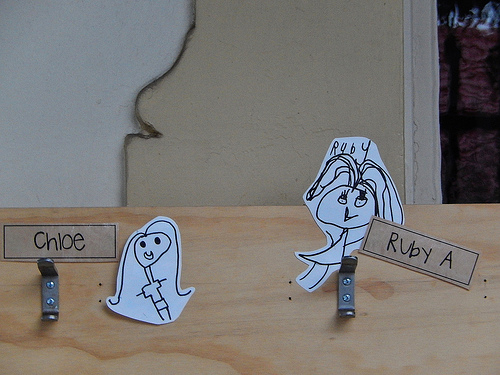N is for Names
(image flikr creative commons via photopin)
N is for Names.
There’s something rather mystical about names. There are magic spells that only work if you know your intended’s name. Rumpelstiskin was one, I think. We inscribe names on walls to honor those who have died in war. We make giant quilt panels to remember the names of those who died of AIDS.

(image credit Wikimedia Commons)

Welcome to Day N of Blogging from A to Z. Thank you, me mateys, for hanging in. We’re on the alphabet home stretch.
As I said, names hold special power. Whenever I write, I think carefully about the names I give to characters. I have an old baby names book published in 1953. Its navy leather cover is faded and the pages are brown and crackly, but I read this book every time I name a character. I choose names based on sound, connotation, and meaning.
I first learned about the importance of names in literature from my seventh grade English teacher. We were reading The Lillies of the Field by William Edmund Barrett. The protagonist’s name was Homer Smith. Mrs. Penn taught us that he was named Smith to represent Everyman. Now when I think of his name, what pops out for me is Homer–the epic poet.
Dickens had fun with his names. You just know someone called Mr. Pumblechook will be full of hot air and nonsense. And then there’s Ebenezer Scrooge. Kristen Lamb wrote an interesting post about the power of names using A Christmas Carol. Check it out here.
Modern authors play with names, too.

Joe Hill does this in his novel Heart-Shaped Box–probably the best modern example of names symbolism I know. At the beginning of the book, the anti-hero is a washed up, sold out musician named Judas Coyne. (Hmmm…reminds me of another guy who sold out for some silver coins.) The evil ghost is named Craddock, a perfect Dickensian name if I ever heard one. What’s especially cool about Joe Hill’s book is that the characters undergo a sort of re-naming as they evolve. Very cool!
(image credit flikr creative commons via photopin)
No, I don’t know Chloe and Ruby A., but I thought their name tags with illustrations were adorable.
So, Readers, do you notice names when you read novels? What is your favorite book with a memorable name? For you writers out there–what do you think about when you name your characters?


6 thoughts on “N is for Names”
Ack – I just posted this: http://www.juliegilbertbooks.com/2015/04/16/n-is-for-names/ Then I though, I’ll head over to Pen in Her Hand and see what Deb is writing about today (I’ve so enjoyed your posts). Great minds and all. 🙂 One name that’s stuck with me forever (I think because of how it rolls off the tongue) is Phileas Fogg from Around the World in 80 Days. I impressed my bar trivia team a few weeks ago by pulling it out of the deep recesses of my mind. And it is a great name.
Ha ha! You’re right–Phileas Fogg is a great name. And I would have been totally impressed to hear you remember it! So fun that you did names, too. I’m heading over your way…
I’m a huge name nerd, and tend towards classical eccentric and classical unusual names (like Beatrice, Justine, Octavia, Wolfgang, Felix, and Ezra). I tend to give more common or popular names to secondary and minor characters. I also like to use less-common names for my characters from non-English-speaking places, and have found some great Russian-language name sites for just this purpose. Behind the Name is also an awesome resource; I can’t understand the complaint of someone who commented on my names blog once to claim Mike C. doesn’t cite his sources and is frequently wrong. BTN is one of the best name sites on the Internet, and has plenty of sources cited if you know where to look!
Fewer things turn me off to a book, movie, or TV show faster than predated naming trends. It’s one thing to have some outlier names (since not everyone has current Top 100 names), but don’t insult my intelligence by expecting me to believe in a grown woman named Madison, a 20-year-old named Kaden, or a 19th century boy named Jaden. Gut-loading a contemporary novel with current Top 100 names is also a surefire way to quickly date it.
Yes, using names well is so critical to good fiction writing. Dates of use as well as connotations are equally important and can be very tricky. When I was working on 16th century Korean names, I had to check with several native Koreans to be sure about usage even though I knew the names were old enough.
I had not heard of Behind the Name. It looks like a great site with everything right there. I will definitely use it in the future. Thanks for bringing it to my attention!
I definitely have a thing for names. My main characters names all have a some sort of meaning to them. It may be a personality trait or what they are in the story. Like Anka, for example, it means phoenix in Persian. I use it for one of my MCs because of the storyline and her role in it.
Anka is a beautiful name. How cool that it means phoenix! I can see how you could use that for symbolic significance.